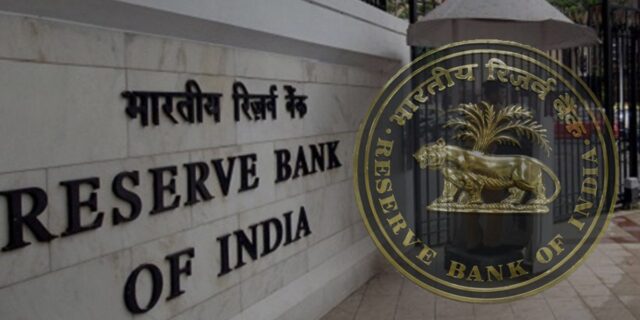Industry experts believe sector to reach $1 trillion milestone by 2030
Mumbai: Credit outstanding to the housing sector rose by nearly Rs10 lakh crore in the last two fiscals to reach a record Rs27.23 lakh crore in March this year, according to RBI’s data on ‘Sectoral Deployment of Bank Credit’.
Experts from banking and real estate sectors attributed this growth in housing credit outstanding to a strong revival in the residential property market post-COVID pandemic on pent-up demand.
According to the data of the Reserve Bank of India (RBI) on sectoral deployment of bank credit for March 2024, the credit outstanding to the housing (including priority sector housing’) stood at Rs27,22,720 crore in March 2024, up from Rs19,88,532 crore in March 2023, and Rs17,26,697 crore in March 2022.
The data also showed that the credit outstanding towards commercial real estate stood at Rs4,48,145 crore in March 2024. It was at Rs2,97,231 crore in March 2022.
According to reports from various property consultants, housing sales and prices have surged significantly in the past two financial years.
When contacted, Madan Sabnavis, Chief Economist with Bank of Baroda, said the high growth in home loans can be attributed to the housing boom seen across all segments.
In particular, Sabnavis said the affordable housing segment has witnessed an uptick due to the government push.
“There was also some pent up demand for buying homes in the last two years following COVID which is getting reflected here,” he said.
Sabnavis said the home loan growth would remain robust, but might taper down to 15-20 per cent due to a higher base.
Commenting on the RBI data, Samir Jasuja, CEO and MD of PropEquity, a leading real-estate data and analytics company, said the rise of housing loans outstanding is primarily due to the significant increase in the quantum of properties launched and sold in the last two fiscal years.
“Major Tier-1 cities have witnessed high rates of price appreciation ranging between 50-100 per cent since FY 2021, which has contributed to an increase in average loan size per property,” he explained.
Jasuja expects the housing loan segment to remain on an uptrend as demand for residential real estate remains strong.
Indian real estate sector, which supports more than 200 ancillary industries including cement and steel, has been witnessing a strong demand since 2022, after languishing for more than a decade because of subdued sales and stable prices.
The real estate sector suffered on account of disruptions caused by new realty law RERA, GST and demonetisation besides trust deficit in the sector as many developers did not deliver projects after taking money from customers. However, the sector bounced back post-COVID as the pandemic re-emphasized the importance of home ownership.
Industry experts believe the sector to reach $1 trillion milestone by 2030.
Karthik Srinivasan, Senior Vice President and Group Head at rating agency ICRA, said the retail housing loans deployed by banks has increased significantly in FY’24 consequent to the merger of Housing Development Finance Corporation Ltd (HDFC) with HDFC Bank effective July 2023.
“Mortgage penetration level is steadily increasing in India (around 12 per cent as of March 2024; the amount of housing loans outstanding as a proportion of GDP), but remains relatively lower than developed economies, implying significant room for growth,” he said.
ICRA expects the trend to continue with overall housing finance expected to grow by 12-14 per cent annually in the near-to-medium term, supported by buoyant demand.
Aakash Ohri, Jt Managing Director of DLF Home Developers, said there is an unprecedented surge in the demand for homes, which has reached an all-time high in the past two years, particularly in the aftermath of COVID.
“This surge underscores a fundamental shift in people’s perception of homeownership, where the value of having a place to call home has become more apparent than ever before. Residential real estate has not only served as a sanctuary for end-users but has also emerged as an attractive investment avenue,” he said.
Ohri further said the remarkable growth in home loan advances can be attributed to various factors, including favourable government policies, attractive financing options, and the growing aspirations of the populace for homeownership.
Mohit Jain, Managing Director, Krisumi Corporation said the demand for spacious homes has truly skyrocketed and buyers are prioritising comfortable living areas and dedicated workspaces.
“We are seeing a surge in interest for properties with dedicated home offices and outdoor space features that were once considered luxuries, but are now essential for the modern homeowner,” he said.
The long-term outlook for the housing market remains incredibly strong and accordingly, home loan growth is also likely to remain strong, Jain added.
Realtors believe that the sector is probably in the 2nd or 3rd year of a long-term upcycle. To further boost housing demand, real estate industry bodies CREDAI and NAREDCO have been demanding the government to increase the tax sops on home loans. They are seeking that the deduction allowed on payment of interest on home loans should be enhanced to Rs 5 lakh from the current Rs 2 lakh.










